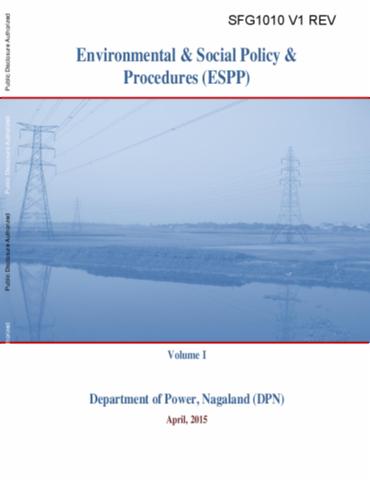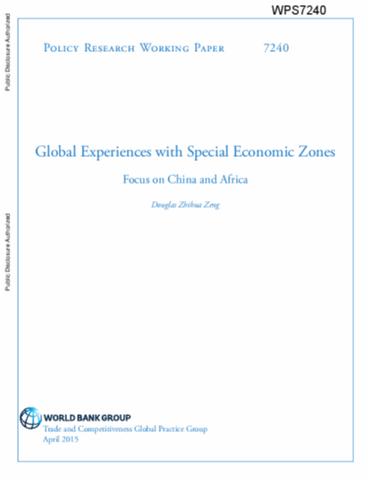The World Bank is a vital source of financial and technical assistance to developing countries around the world. We are not a bank in the ordinary sense but a unique partnership to reduce poverty and support development. The World Bank Group has two ambitious goals: End extreme poverty within a generation and boost shared prosperity.
- To end extreme poverty, the Bank's goal is to decrease the percentage of people living on less than $1.25 a day to no more than 3% by 2030.
- To promote shared prosperity, the goal is to promote income growth of the bottom 40% of the population in each country.
The World Bank Group comprises five institutions managed by their member countries.
The World Bank Group and Land: Working to protect the rights of existing land users and to help secure benefits for smallholder farmers
The World Bank (IBRD and IDA) interacts primarily with governments to increase agricultural productivity, strengthen land tenure policies and improve land governance. More than 90% of the World Bank’s agriculture portfolio focuses on the productivity and access to markets by small holder farmers. Ten percent of our projects focus on the governance of land tenure.
Similarly, investments by the International Finance Corporation (IFC), the World Bank Group’s private sector arm, including those in larger scale enterprises, overwhelmingly support smallholder farmers through improved access to finance, inputs and markets, and as direct suppliers. IFC invests in environmentally and socially sustainable private enterprises in all parts of the value chain (inputs such as irrigation and fertilizers, primary production, processing, transport and storage, traders, and risk management facilities including weather/crop insurance, warehouse financing, etc
For more information, visit the World Bank Group and land and food security (https://www.worldbank.org/en/topic/agriculture/brief/land-and-food-security1
Resources
Displaying 946 - 950 of 4906Environmental and Social Policy and Procedures
The North Eastern Region (NER) in India is endowed with rich energy resources but faces significant bottlenecks in electricity access and availability levels. The per capita power consumption in NER is one-third of the national average. The region has a shortfall of about 500MW installed capacity against peak demand of about 1950 MW. No significant generation capacity has been added in the recent past. Therefore, inadequate power supply continues a critical constraint to sustainable growth and economic development in the NER.
Global Experiences with Special Economic Zones
This study briefly summarizes the development experiences of special economic zones in China and Africa, the lessons that Africa can learn from China, and the preliminary results of the Chinese investments in special economic zones in Africa. The study makes recommendations on how to unleash the power of special economic zones and industrial zones in Africa through strategically leveraging the Chinese experiences.
Solomon Islands
A slow-moving tropical depression caused
persistent heavy rains in the Solomon Islands between April
1 and 4, 2014. The highest recorded daily rainfall
associated with this event was 318mm in Honiara on April 3.
The rains caused flash flooding in Honiara, Guadalcanal,
Isabel, Malaita, and Makira-Ulawa. More than 732mm of rain
was recorded over four days at the Honiara rain gauge,
although heavier rainfall was reported inland. On April 5,
Options and Guidance for the Development of Baselines
Developed under the auspices of the
Partnership for Market Readiness (PMR) and with advice and
input from its Baselines Working Group, this document offers
guidance and options for the development of emissions
baselines, a key component for assessing the emission
reductions in in both market and non-market based
mechanisms. In the context of this document, a baseline
refers to a scenario that describes expected or desired
Romania Climate Change and Low Carbon Green Growth Program
This report has been prepared by the
World Bank for the Government of Romania as an output of the
World Bank advisory services program on climate change and
low-carbon green growth in Romania. In response to the
request, the World Bank quickly mobilized a team of sectoral
and climate change (CC) specialists and conducted rapid
assessments in six sectors - energy, transport, urban,
water, agriculture, and forestry, which were pre-identified








